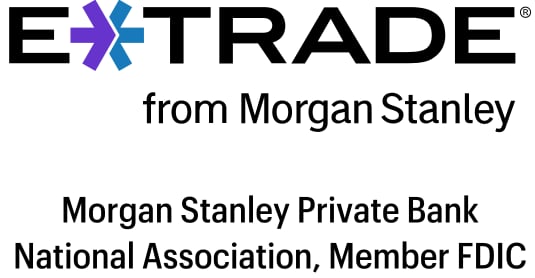How Do CDs Work? Learn How to Save Smarter
CDs lock up savings for a fixed period of time in exchange for a generally higher rate than other bank accounts.

Many, or all, of the products featured on this page are from our advertising partners who compensate us when you take certain actions on our website or click to take an action on their website. However, this does not influence our evaluations. Our opinions are our own. Here is a list of our partners and here's how we make money.
How CDs work
A certificate of deposit is a type of savings account with a fixed interest rate and term. CDs, called share certificates at credit unions, tend to have the highest rates among federally insured bank accounts. CD returns, assuming no early withdrawals, are also guaranteed. Here’s a breakdown of various factors that make up CDs.
Skip down to any section:
CD rates | CD terms | CD safety | CD deposit
CD rates
Unlike regular savings accounts, most CDs earn the same rate over time. This can be a plus if you lock in a high rate and see new rates offered across banks fall. And it can be a negative when you’re looking at low rates that may rise soon. Rates are in terms of annual percentage yield.
» COMPARE: NerdWallet's best CD rates
CD terms
You must choose a specific time frame to open a CD. Terms generally range from three months to five years, and terms can impact both rates and early withdrawal penalties, which are fees charged if you cash out a CD before the term ends. Generally, the longer the term, the higher the rate; penalties tend to be bigger for longer terms. Consider how much time you can keep some cash locked up and learn more about short-term, midrange and long-term CDs.
High CD rates for now
CD rates have started to drop and may likely continue to fall in the second half of 2024, especially if the Fed decides to drop its rate. Now might be a good time to get high CD rates, if they work for your savings goals. See where rates are headed in our CD rate forecast.
CD safety
Like other bank accounts, CDs have federal deposit insurance up to $250,000 at banks insured by the Federal Deposit Insurance Corp. and at credit unions insured by the National Credit Union Administration. This means you get your money back, guaranteed, if a financial institution goes bankrupt.

A CD’s main risk is opportunity risk, meaning you may lose out on higher rates if you open a CD right before rates rise. But unlike investing in stocks or bonds, you typically don’t risk losing money from a CD based on factors outside your control, such as financial market performance. Learn more about how CDs are safe.
Marcus by Goldman Sachs High-Yield CD

4.25%
1 year
Bread Savings™️ CD

4.50%
6 months

Federally insured by NCUA
Alliant Credit Union Certificate

4.00%
1 year

Member FDIC
Discover® CD

4.00%
1 year
CD opening deposit
Your initial deposit tends to be your only time to add money into a CD. A standard CD has a minimum opening deposit that can range from $0 to $10,000. CDs with much higher minimums, such as $100,000, are typically called jumbo CDs. Be mindful that the $250,000 federally insured limit applies, and choose how much to put into CDs based on your savings goals.
CD maturity date
Unlike any other bank account, CDs mature on a specific day either months or years after you opened it. Many banks automatically renew CDs, but that might not be in your best interest since it’s better to compare rates each time you open a new CD. Consider your choices when CDs mature.
CD penalty
If you break the seal on a CD before the maturity date, you’ll likely pay a penalty worth several months to a year’s worth of interest earned. Learn more about CD early withdrawal penalties.
Types of CDs
For the most part, you’ll consider CDs with fixed rates, no ability to add more money over time, and a penalty if you access the money before maturity. However, not all CDs have this set of traits.
No-penalty CDs, for example, let you withdraw for free whenever you choose.
Step-up CDs have the CD rate increase once or twice during a term.
Explore these and other types of CDs.
» Explore more articles on our overview page about certificates of deposit
When to get a CD
CDs can be worth it for people in specific situations, such as:
Locking up funds for a future purchase: If you have some savings dedicated to a big purchase years away, such as a car or down payment for a home, a CD can keep your money safe and out of reach until the estimated date you’ll need it.
Protecting wealth for several years: If you want to avoid the risks that come with stocks and bonds, especially if you’re close to retirement, you may decide to use long-term CDs. Your money won’t grow as much over time as in stocks, but CD returns are guaranteed and generally higher than those of other bank accounts.
Using CDs for pre-invested funds: If you’re a fan of gradually investing money and you’re sitting on a large sum of cash, you might decide to spread out when you buy stocks or mutual funds using a strategy known as dollar-cost averaging. You can put the cash you’ll eventually invest into CDs to earn more interest than if it were sitting in a regular savings account.
How to open a CD
First, choose your CD based on rate, term and type of CD. Next, choose how to apply — online, over the phone, or at a branch if applicable — and get your identification ready. Read more about the next steps to opening a CD account.








